Ian James Bickerton is an honorary associate professor and former member of the School of History at the University of New South Wales, Sydney, Australia. He received a BA (Honors) in 1961 from the University of Adelaide, an MA in 1965 from Kansas State University, and a PhD in 1974 from the Claremont Graduate School in California. He has authored and edited nine books and several in-depth articles covering United States diplomatic history, the Arab-Israeli conflict, and the futility of war. He is internationally known for his writings on the Arab-Israeli conflict, and his History of the Arab-Israeli Conflict (coauthored with Carla Klausner), widely regarded as the most balanced text on the subject, is now in its eighth edition. He has twice been a visiting fellow at the Oxford Centre for Hebrew and Jewish Studies in the United Kingdom and twice at the Johns Hopkins School of International Affairs in Washington, DC. Professor Bickerton is also frequently called upon as a commentator on the United States and the Middle East for the Australian media, including the Australian Broadcasting Commission (ABC).

John F. Kennedy
Significant Figures in World History
Charles Darwin: A Reference Guide to His Life and Works ,
by J. David Archibald, 2019.
Leonardo da Vinci: A Reference Guide to His Life and Works ,
by Allison Lee Palmer, 2019.
Robert E. Lee: A Reference Guide to His Life and Works ,
by James I. Robertson Jr., 2019.
John F. Kennedy: A Reference Guide to His Life and Works,
by Ian James Bickerton, 2019.
Published by Rowman & Littlefield
An imprint of The Rowman & Littlefield Publishing Group, Inc.
4501 Forbes Boulevard, Suite 200, Lanham, Maryland 20706
www.rowman.com
6 Tinworth Street, London, SE11 5AL, United Kingdom
Copyright 2019 by Ian James Bickerton
All rights reserved. No part of this book may be reproduced in any form or by any electronic or mechanical means, including information storage and retrieval systems, without written permission from the publisher, except by a reviewer who may quote passages in a review.
British Library Cataloguing in Publication Information Available
Library of Congress Cataloging-in-Publication Data
Names: Bickerton, Ian J., author.
Title: John F. Kennedy : a reference guide to his life and works / Ian James Bickerton.
Description: Lanham : Rowman & Littlefield, [2019] | Series: Significant figures in world history | Includes bibliographical references and index.
Identifiers: LCCN 2019016322 (print) | LCCN 2019018194 (ebook) | ISBN 9781538120569 (Electronic) | ISBN 9781538120552 (cloth : alk. paper)
Subjects: LCSH: Kennedy, John F. (John Fitzgerald), 19171963Encyclopedias. | United StatesPolitics and government19611963Encyclopedias.
Classification: LCC E841 (ebook) | LCC E841 .B53 2019 (print) | DDC 973.922092 [B] dc23
LC record available at https://lccn.loc.gov/2019016322
 The paper used in this publication meets the minimum requirements of American National Standard for Information SciencesPermanence of Paper for Printed Library Materials, ANSI/ NISO Z39.48-1992
The paper used in this publication meets the minimum requirements of American National Standard for Information SciencesPermanence of Paper for Printed Library Materials, ANSI/ NISO Z39.48-1992
Contents
Guide
John Fitzgerald Kennedys election as president in November 1960 and his assassination three years later in November 1963 were truly transformative events in the history of the United States. Not simply because Kennedy was a young and charismatic president, but because, as the first president to be born in the 20th century, his presidency marked the end of an era; it symbolized the end of the legacy of the 19th century. Many Americans saw in the dynamic, self-confident John Jack Kennedy the embodiment and standard bearer heralding the onset of the American Century that Life magazine owner Henry Luce had predicted. But it was not to be.
That unrealized outcome posed a tantalizing question that fascinates Americans and millions across the world to this day: just what would the United States be today if Kennedy had served two termsas he, and others, had every right to anticipate? The poignancy of this central question is heightened by the assassination less than five years later of Jacks brother, Robert F. Kennedy. Once again, many Americans assumed that had Robert been elected president in 1968, he would have picked up Jacks torch and completed the unfinished business begun by his brother. Roberts death compounded the tragedy and loss of Jack.
The study of any president presents its own challenges to understanding the man and the office. That astute student of the constitution, former president Harry S. Truman, once observed: The presidency is the most peculiar office in the world. Theres never been one like it. The president is both more and less than a king, and also more and less than a prime minister. He is alone at the top. And one of the main challenges in assessing a presidents performance is the question of determining the factors that contribute to a presidents decision. Quite simply, the solitary authority of the person in the Oval Office makes complete knowledge of the answer to this question impossible. John F. Kennedy himself readily acknowledged this reality: The essence of ultimate decision remains impenetrable to the observeroften, indeed, to the decider himself.
I once asked Truman, long after he had left office: what had led him to recognize the state of Israel on 14 May 1948 on a de facto basis so quickly after the new states declaration of independence, coming as it did just minutes after the announcement made by David Ben-Gurion? Trumans answer epitomized both the man and the power of his office: Somebody had to do something, he said, so I did it. And, of course, he could. Kennedy reflected on this question of decision making more than once. Less than four months before his murder, he wrote of the presidency: No one in the country is more assailed by divergent advice and clamorous counsel.... There will always be the dark and tangled stretches in the decision-making process. Many other presidents have made similar observations about their decision making, but Truman, at least, did not appear to agonize as Kennedy did over his decisions. Once he had made a decision, he told me, he slept well, and he had few regrets.
Nevertheless, what we can say is that many of the characteristics of the office of president we witness in the early decades of the 21st century are very much the result of initiatives introduced during the short time of the Kennedy years. Kennedy expanded the authority of the executiveespecially in relation to foreign relationsleading to the virtually unrestrained control exercised by recent incumbents in the White House. He increased the power of presidential advisors at the expense of traditional departmental heads. He made extensive use of modern media to reach out directly to the people, bypassing potential objections from congressional opponents.
Todays presidents are still addressing all the great issues of the 1960s that Kennedy facedthe struggle of equal rights for African Americans and for women, the challenges of ethnic diversity, the limitation and control of nuclear weapons, and the Cold War and its legacy. But above alland this is perhaps what is lacking in todays AmericaJohn F. Kennedy used his extraordinary oratorical ability and the power of his office to reformulate and extoll the traditional values of the nation, giving pride, inspiration, and optimism to both Americans and to the world with an eloquence and conviction not heard for many years before or, for that matter, since, with, perhaps, the exception of Barack Obama. Those brief three years offered Americans a new beginning.


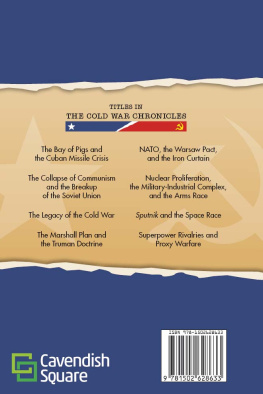
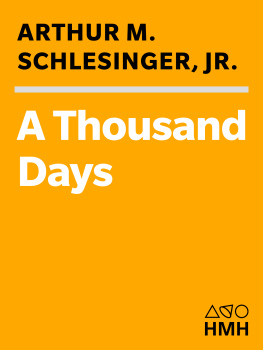
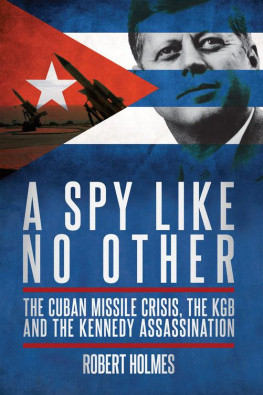
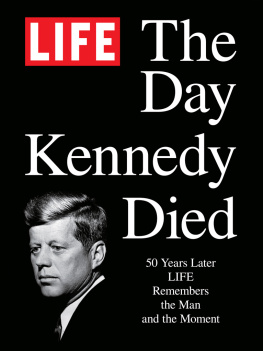
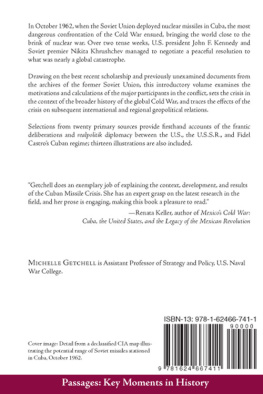

 The paper used in this publication meets the minimum requirements of American National Standard for Information SciencesPermanence of Paper for Printed Library Materials, ANSI/ NISO Z39.48-1992
The paper used in this publication meets the minimum requirements of American National Standard for Information SciencesPermanence of Paper for Printed Library Materials, ANSI/ NISO Z39.48-1992